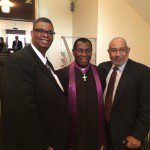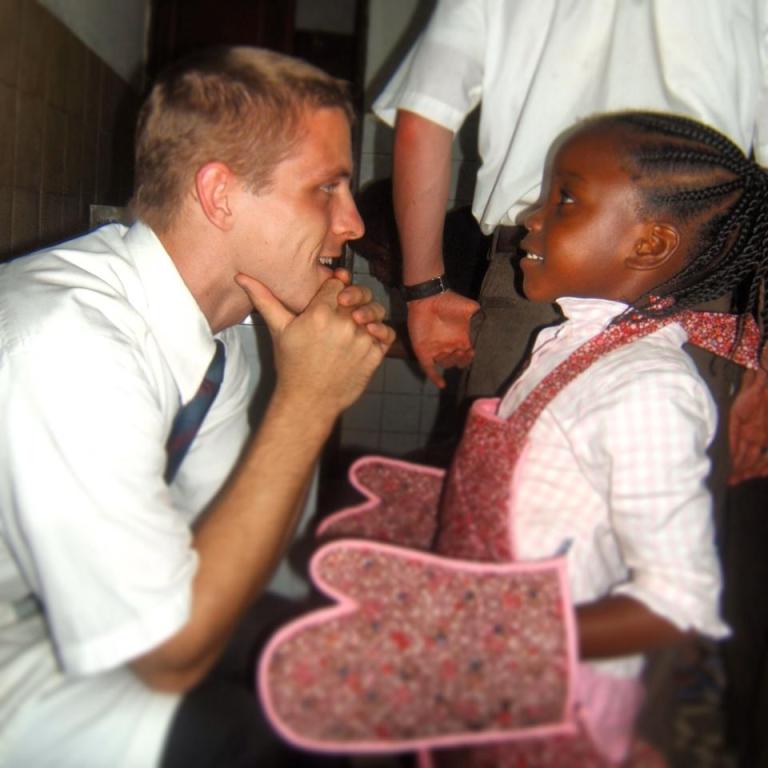
In 2012, I was teaching LDS Institute in Spanish. Most of my students were from Mexico, but I had some from Chile, El Salvador, and Puerto Rico. I had attended summer training for Seminary and Institute teachers at BYU and had received the manual given to all instructors. It was November and I still had not opened it. I was more than halfway through the Doctrine and Covenants when I decided to see what was in the supplement. It was still shrink-wrapped.
I was preparing to teach section 76 of the Doctrine and Covenants. I confess that I did not actually read the supplement before typing my translations, but translated word to word. I did not finish translating the following paragraph, submitted by a BYU religion professor, when I realized what it was saying. I immediately called Darius Gray, my co-author, and reported what I had found. This is the quote, from Church president John Taylor, which the BYU professor included in his supplementary page:
And after the flood we are told that the curse that had been pronounced upon Cain was continued through Ham’s wife, as he had married a wife of that seed. And why did it pass through the flood? Because it was necessary that the devil should have a representation upon the earth as well as God; and that man should be a free agent to act for himself, and that all men might have the opportunity of receiving or rejecting the truth, and be governed by it or not according to their wishes and abide the result; and that those who would be able to associate with the Gods in the eternal worlds.
Did you catch it? This quote suggests that Blacks (perceived by John Taylor as the seed of Cain) were Satan’s representatives on earth.
As it happened, Darius already had an appointment with Elder Dallin Oaks to discuss race issues. He asked me to bring him the original of this page. As I recall, I drove to his place immediately.
At the appointment, Darius said, “Elder Oaks, do you consider me a representative of Satan?”
Elder Oaks said, “Of course not.”
“Do you consider my people to be representatives of Satan?”
“No,” he said.
“How would you feel,” said Darius, “if that were being taught in Seminary and Institute classes?”
“That would be appalling,” Elder Oaks said.
Darius handed him the paper with the quote.
I will not report what Elder Oaks said, only that the quote was immediately addressed and that there were consequences.
Elder Oaks was willing to listen to Darius and take action when he realized that we had a problem.
I also contacted the BYU professor (who would become quite famous the next year when he did an interview with The Washington Post and said racist things which the Church disavowed twice the next day.) When I told him that I was concerned about the quote and wanted to talk with him about it, his reply was, “I often have students who have questions, but they do not usually question our leaders.” He said he did not wish to meet with me.
Lessons:
Elder Oaks knew that Darius was a trustworthy mentor. I know that as well. He is my mentor-of-choice in race issues, the first I call when I see a problem. HE KNOWS what it’s like to be Black in America. I recognize that I do not, though I perpetually urge my empathetic imagination to go as far as it can.
The religion professor assumed that John Taylor was a trustworthy mentor. In this case, John Taylor was “spectacularly wrong,” as Elder Oaks once said about justifications for the priesthood restriction.
A few questions for anyone concerned about race issues:
Who are your trusted mentors? Are you relying on a single narrative or periodically challenging it?
Is your moral center well enough developed to recognize a mistake, even if your mentor said it?
Are you willing to learn more about the issue from other sources?
If the answer to the last question is NO, the conversation ends.
If it’s yes…
Well, I’ll continue the conversation in my next blog post.
I intend to talk about how Darius taught me to challenge the racism I did not initially recognize. I think he can be a good mentor for anyone reading this.














